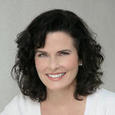Ever found yourself really wanting to say “No” but saying “Yes” instead?
For some of us saying "No" can be difficult. However, learning how to effectively say "No" in an assertive manner rather than not at all or in an aggressive style is an important skill that is freeing and empowering.
There are many situations we all find ourselves in that call for us to respond with either a “No” or a “Yes.” Many people seem to struggle with not being able to say “No” effectively when “No” is what they really want to say.
Not Saying "No" Has Negative Consequences
Not being able to say "No" has many negative ramifications.
If you can’t say "No" effectively and successfully, then you won’t be able to set vitally important limits and hold boundaries. A boundary is a relational dividing line or border between you and anyone else, including loved ones. Our “No” helps us with physical, emotional, mental or spiritual limits. Healthy boundaries and limits are clear and they promote safety and closeness.
There are times when saying some form of “No” is the best way to take good care of ourselves. Our ability or inability to say “No” determines the quality of our life as we relate to ourselves, others and the world at large.
Is the “Yes” I’m saying true and real?
In order to say a true “Yes,” we need to be able to say “No.” If what we’d really like to say is “No” and instead we say “Yes” ... then our “Yes” is not a true, authentic “Yes.” Saying “Yes” when what you want to say is “No” ends up creating a mixture of feelings and thoughts that can be confusing for us as well as others, creating many problems in our lives. Not being able to effectively say “No” prevents us from speaking a true and real “Yes” ... which in turn prevents us from living a more satisfying and fulfilling life.
Not being able to say an authentic "Yes" will cause you to miss out on many opportunities.
Why is “No” so hard?
Saying “No” represents different things to different people. For one person it could signify the scary possibility of standing up for one’s self. For another, it could mean letting go of something. And for someone else saying "No" could mean the possibility of disappointing someone.
We can have many different feelings associated with the idea of saying “No.” Perhaps we might be afraid that the other person will be angry at us or be hurt by our answer or we might lose their love or friendship. Perhaps we will feel shame if we say “No.”
I’ve seen through the years that often our inability to say "No" is based on some historical fears. Perhaps we felt in the past it was dangerous on some level to have clear, healthy boundaries or even say, "Not right now." We might be frightened of the other person’s hatred. It's possible we even feared abandonment or rejection.
Maybe we heard statements in our past from others: “Who do think you are to say no to me?” Or, “Who are you to have the right to say no?” Or, “I need you to do this for me!” So you thought you needed to stifle yourself to survive.
Learning to Say “No” Helps us Heal Codependency
Learning to say “No” requires us to successfully navigate the feelings inside of us, as well as letting go of the need to rescue the other person from their possible feelings of hurt or disappointment. We might think if we say “No,” we will damage that relationship. If this is true, then this relationship needs some help.
If the other person is looking for a rescue of some sort, they will probably find someone to save them. But it doesn’t have to be you. It doesn't have to be at your expense. The development of the skill of setting and holding healthy boundaries and saying “No” helps us heal codependency.
Dr. Jennifer Howard is a licensed psychotherapist, healer, author, relationship counselor, and professional speaker with more than 20 years of experience in helping people make changes in their lives. She’s created a personal development plan and assists people in personal development and spiritual growth through her lectures, workshops, and her upcoming book, Changes That Last. She has offices in Huntington, Long Island, NY, and New York City, is a leading expert on spirituality and psychology, and is a former faculty member of the graduate program of A Society of Souls and has appeared as an expert on numerous national network television shows including The Maury Povich Show, America’s Talking, Rolanda & other national media. She is known for her compassion and wit.
Right now, Receive a FREE MP3 of Dr. Howard’s latest teleconference “Tips on Goal Setting + Guided Meditation” and her FREE e-zine “Changes That Last.” Along with the free MP3, feel free to read articles written by Dr. Howard, gain access to the online Virtual Meditation Room with guided and visual meditations, and more. Visit http://www.drjenniferhoward.com/free-gift.asp
Additional Resources covering Personal Development can be found at:
Website Directory for Personal Development
Articles on Personal Development
Products for Personal Development
Discussion Board
Dr. Jennifer Howard, the Official Guides To Personal Development

Post new comment
Please Register or Login to post new comment.